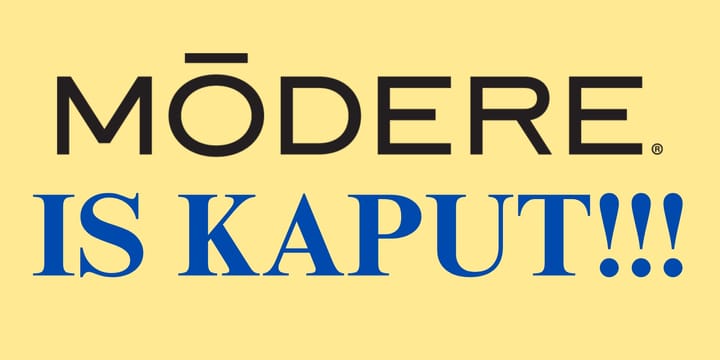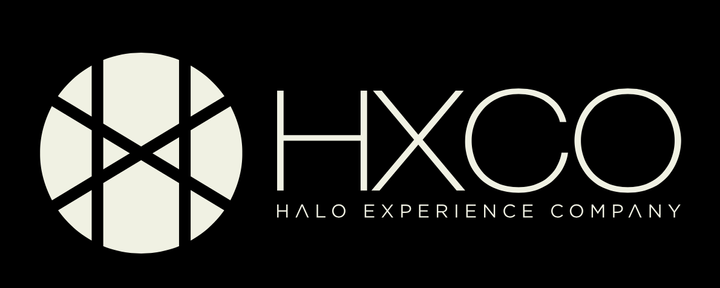Utah-based Instructure is Being "Taken Private" for $4.8 Billion; Here's the Rest of the Story.
"... without Josh Coates in the mix, I'm dang certain Instructure doesn't sniff anything close to $7.2 billion on its 14-year journey.

Some 14 years after he invested in Instructure (the "EdTech" firm started by two of his former BYU grad students), Josh Coates has now seen the Utah-based "EdTech" pioneer go through multiple venture capital fundings, an Initial Public Offering, a private equity acquisition by Thoma Bravo for ~$2.0 billion, a second IPO led by super-majority-owner Thoma Bravo, and now, a second "take private" PE acquisition, this one for $4.8 billion by KKR.
This report dives into "the rest of the story" surrounding Instructure (as empowered and inspired by Josh Coates), as well as the recently disclosed plans by KKR to acquire and take the firm private once again.
On the surface, the news release published by Salt Lake City, Utah-based Instructure Holdings (NYSE:INST) the day after Pioneer Day 2024 was fairly straightforward:
Instructure was being acquired for $4.8 billion by global investment leader, KKR, in an all-cash transaction that valued the company at $23.60 per share.
Straightforward-looking or not, the reality is that the actual backstory behind the pending multibillion-dollar "take private" acquisition of Instructure traces back long before it became one of the most successful EdTech firms on the planet and was merely a "gleam in the eyes" of two BYU grad students in 2008.
In fact, one can argue that the success of Instructure is actually traceable all the way back to the late 1980s in the so-called East Bay of the greater San Francisco Bay Area when a young Josh Coates worked as a Data Entry Technician for Handle with Care Packaging in 1987 and as a lifeguard for Sleepy Hollow Swim & Tennis Club in 1988.
The Josh Coates Backstory
As noted on his LinkedIn Profile, Coates began his studies at the University of California, Berkeley in 1992 and graduated with a bachelor's degree in Computer Science in 1998, with the two-year gap educational covered by his missionary service for The Church of Jesus Christ of Latter-day Saints in Boston, Massachusetts.
As outlined on his own website, JCoates.org, Coates' technology career began in 1996 after his LDS mission when he became a Research Assistant for the NOW / Millennium Research Group in the Computer Science Department at UC Berkeley.

Before graduating from college, Coates had previously served as a
- Research Assistant at UC Berkeley's Space Sciences Laboratory, and a
- Researcher for the Center for Extreme Ultraviolet Astrophysics.
He also spent time in 1998 as a Research Software Development Engineer for Microsoft Research in Berkeley, before joining Inktomi as a Research Engineer.
Coates' entrepreneurial journey started in 1999 when he co-founded and served as Chief Technology Officer / Board Member for a Bay Area-based venture-backed firm named Scale Eight, a company eventually shuttered in 2003, but with its intellectual property sold to Intel.
After "taking a break" to serve as Director Engineering/Operations for ~one year at Internet Archive, Coates moved his family to Utah in 2005 where he founded Berkeley Data Systems, a VC-backed, American Fork, Utah-based firm primarily known for Mozy, its online data backup system.
Some two years later, Coates and his fellow shareholders successfully sold Berkeley Data Systems to EMC for $76 million in the fall of 2007.
A year later, Coates stepped away from his early "retirement" to begin a two-year journey as an Adjunct Professor in the Computer Science Department at Brigham Young University.
At BYU he taught CS405 — "Intro to Venture Startups" — a graduate-level class where two students, Brian Whitmer and Devlin Daley, were inspired to launch an Educational Technology firm eventually known as Instructure.
Then in March 2010, Crunchbase reports that Coates and Salt Lake City-based EPIC Ventures invested $1.1 million in Instructure in an A Round of funding, with Coates also joining the EdTech firm as CEO in October that year.
Over the next several years, Coates led Instructure to increasing success as it took on the EdTech marketplace and then market leader, BlackBoard and raised to total of roughly $90 million in venture funding prior to Instructure's successful IPO on the New York Stock Exchange in November 2015 when it sold 4.4 million shares of common stock at a price of $16.00/share.

Although Coates' role as Instructure CEO ended in December 2018, he stepped into its Executive Chairman role in January 2019, a position he held until late March 2020.
That said, by 04 December 2019, Coates and his team had negotiated an acquisition of Instructure by leading private equity firm, Thoma Bravo, for ~$2.0 billion.
That deal was consummated on 24 March 2020, shortly after the initial craziness of the COVID-19 pandemic began to emerge on a global basis, with Coates exiting Instructure by the end of the month.
Sixteen months later, Thoma Bravo announced in July 2021 that it would sell 12.5 million shares of Instructure in a NYSE IPO at a price of $20.00/share, a public offering that netted the firm $233 million.
And now, nearly three years to the day following that IPO, Thoma Bravo has announced it has agreed to a "take private" transaction where global investment firm KKR will acquire Instructure for $4.8 billion.
The Nearly $7.2 Billion, 17-Year Financial Journey of Salt Lake City's Instructure, as Empowered and Inspired by Josh Coates
What??? $7.2 billion, Politis. Are you crazy?!?!?!
Well, let's look at the numbers.
Although Coates did not start Instructure, he
Was an investor in Instructure's $1.1 million Series A round of funding back in 2010;
Led the company through four additional rounds of VC funding of roughly $90 million;
Oversaw the company's first IPO in 2015 where it raised ~$70 million;
Directed Instructure's acquisition by Thoma Bravo in 2020 for ~$2.0 billion; which (in turn)
Positioned the company for a second IPO in 2021 that netted $233 million; all of which
Led up to the now pending $4.8 billion take private acquisition by KKR.
So, yeah ...
- $1.1 million +
- ~$90.0 million +
- ~$70 million +
- $2.0 billion +
- $233 million +
- $4.8 billion =
- ~$7.2 billion in total monies that have (or will) flow into or through Instructure since its 2008 founding.
And without Josh Coates in the mix, I'm dang certain Instructure doesn't sniff anything close to $7.2 billion on its 14-year journey.
That said, in the opinion of this journalist, Instructure's journey is not done — not by a long shot.
So Where in the World is Josh Coates?
As far as Coates is concerned, a Deseret News article from two years ago explains that after taking some time off, Coates launched the B.H. Roberts Foundation as a 501(3)(c) nonprofit in late 2020, where he serves as its Executive Director.
In its mission to "... support education and research related to the culture, doctrine, and history of The Church of Jesus Christ of Latter-day Saints," the Foundation operates
- Mormonr, an often sarcastic/self-effacing look at LDS culture, primarily through digital memes and social media posts, along with
- LDSBOT, an artificial intelligence chatbot focused on LDS-related and religious-focused topics.
Additionally, the B.H. Roberts Foundation published
- A National Later-day Saint Survey in 2022, and
- A National Current and Former LDS Survey in 2023,
both of which are designed to provide independent data and insights into Latter-day Saint individuals.
From what I can tell, beyond the data-related work of this Foundation, Coates is not involved with anything technology-focused today.
Interesting.
PUBLISHER'S NOTE
In case you're not aware of Utah Money Watch, our goal is to publish Utah-focused monetary, financial, and/or business news, context, and analysis on a timely/regular basis, ideally information NOT available through any other source.
[You might think of us at the opposite of Bloomberg, CNBC, and/or The Wall Street Journal, each of which focus on international/national news first and rarely report on local happenings. Conversely, we are passionately focused on uncovering the most important monetary, financial, and/or business news and information that impact the organizations and people of Utah.]
Here again, the intent is to publish news, information, context, and analysis NOT available through any other source.
To that end, this article was originally published and distributed to our Subscribers at approximately 8:15am (MT) on Monday, 05 August 2024.
However, if you are seeing this report sometime after this date/time and you are interested in seeing similar reports and/or other Utah-focused monetary/financial/business news, context, and analysis write-ups in the future on an instantaneous basis when they are published, you can do so by subscribing, FOR FREE, to Utah Money Watch.
This will take less than 30 seconds and can be done from any page on the Utah Money Watch website.
Simply,
1. Click on a "Subscribe" button on any Utah Money Watch webpage,
2. Enter in your name in the proper field in the popup window that appears on-screen, and
3. Enter your preferred email address in the proper field too.
That's it. And "Yes," it really is that simple.
And ... it IS free.
So we hope to see you join us as a subscriber of Utah Money Watch.
Thanks.
Team Utah Money Watch




Comments ()